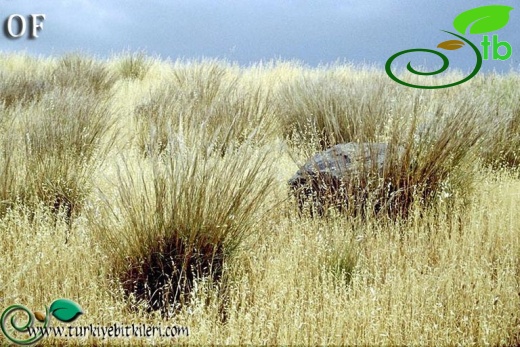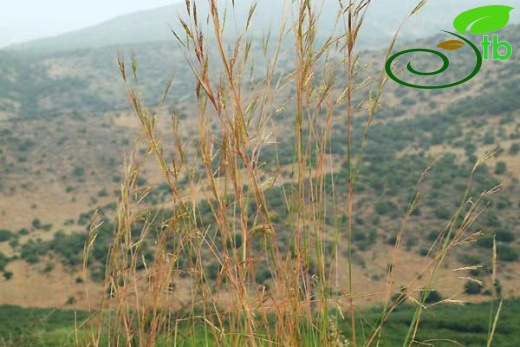Hyparrhenia hirta
Hyparrhenia hirta
Damsazı
Coarse wiry caespitose perennial forming dense tussocks 5-30 cm. Stems 30-70 cm, Leaf blades narrowly linear to filiform, 6-25 cm x 0.5-1.5 mm, flexuous, glaucous, minutely but harshly scabridulous. Panicle 4-20 cm, raceme pairs 1-8. Spatheoles 15-65 mm, becoming reddish. Peduncles ± equal to spatheole, sometimes with white hairs towards top. Racemes 20-50 mm, white-villous, never deflexed; awns 5-14 per pair. Raceme bases unequal, glabrous or hirsute, sometimes with a white beard at base. Homogamous pairs present at base of one or both racemes. Sessile spikelets 4-5 mm, greenish-violet, white-villous, with 16-36 mm awn. Pedicellate spikelets and those of homogamous pairs narrowly lanceolate, 4.5-6.5 mm, acute; pedicel 2-4 mm, with minute subulate tooth 0.2-0.4 mm. Fl. 4-10. Stony hillsides, phrygana, maritime grassland, cliffs, s.l.-1330 m.
Mediterranean area, E. & S. Africa, S.W. Asia, E. to N.W. India; introduced in Australia, C. America, Mexico and the S. part of the United States.






